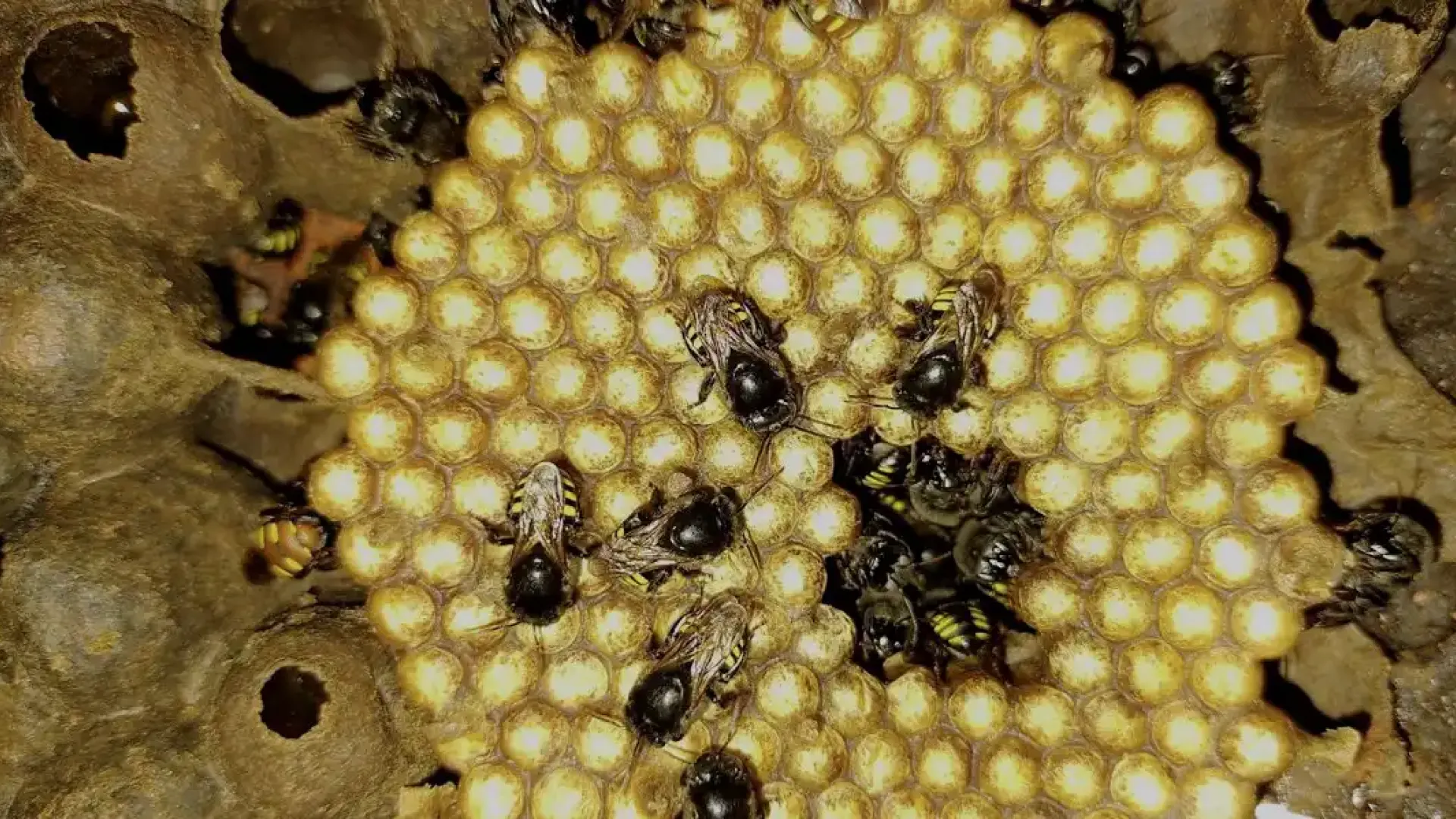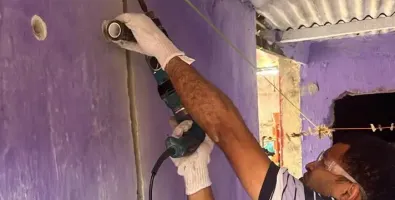
EDP’s Agrivoltaic Project Reaches 48 Beehives and Empowers Community to Generate Income Through Native Stingless Bees
This Friday, October 3, which marks Brazil’s National Bee Preservation Day, the BeeVolt project celebrates one year of activity. The initiative promotes sustainable management of bees with the goal of preservation and income generation. It is an agrivoltaic project—combining agriculture with solar energy generation for more efficient and sustainable land use—carried out by EDP, a company operating across all segments of the electricity sector, in partnership with the startup Bee2Be and the NGO Orientavida.
The breeding and multiplication of native bees began with the installation of a meliponary, a set of rectangular wooden boxes that house the bees. The project started with 20 colonies, each with around 600 bees, and now has 48 hives, with plans to reach 100 by April 2026. In addition to biodiversity benefits, the project also aims to support the local community through environmental education, training in meliponiculture, and income generation.
The project focuses on cultivating native stingless bees of the species Mandaçaia (Melipona quadrifasciata anthidioides), which are endangered. The goal is to positively impact biodiversity in the region of Roseira (SP), where the solar plant is located, as native bees are key pollinators responsible for the reproduction of around 80% of plant species.
Pollination is the process of transferring pollen grains from one plant to another, ensuring the production of fruits and seeds. The Mandaçaia bee is known for pollinating flora species such as Guapuruvu, Angico, Timburí, Uvaia, Pitangueiras, Jabuticabeira, Araçá, Assa-peixe, among others. It is estimated that approximately 630 hectares have already been pollinated by the bees during this period.
The project also aims to include the community, generating socioeconomic benefits. Through a partnership with the NGO Orientavida, based in Potim (SP), seven people were trained in March, some of whom were selected to become knowledge multipliers. Participants—including women in socially vulnerable situations and neurodivergent individuals—learned about the biology and feeding of stingless bees, colony multiplication and management, bait nest creation and use, legislation, and meliponary regulation.
Since then, four hives from the meliponary have been transferred to the NGO and are being multiplied. Currently, there are nine colonies. The idea is that in the coming months, once multiplication is more advanced, income can be generated through the sale of honey-derived products or geopropolis produced at the NGO.
According to Dominic Schmal, ESG Director at EDP in South America, “the project combines environmental preservation and social transformation, reinforcing the company’s commitment to the development of the communities where it operates and to a just energy transition. It is a solar plant that benefits the community in multiple ways—through renewable energy generation, biodiversity protection and enhancement, and also through awareness, environmental education, and income generation.”
Vitor Costa, founder of the startup Bee2Be, adds: “In times of climate change, bees become even more relevant. As pollinators, they ensure the regeneration of native plant species and strengthen ecosystems. That’s why this collaboration with EDP is so valuable: by integrating stingless bee breeding into solar plants, we promote a constructive impact on the environment and the surrounding community.”
Social Solar Plant
The Roseira Solar Plant, where the BeeVolt project is installed, is also a social plant. Inaugurated in February 2024 by EDP, with an installed capacity of 75 kW, the plant generates renewable energy for around 154 families in the Favela dos Sonhos, in Ferraz de Vasconcelos (SP), who receive the benefit through energy bill credits. Between March 2024 and August 2025, families saved over R$ 110,000 in total. The project is carried out in partnership with Gerando Falcões and received an investment of over R$ 500,000 from EDP.
Alignment with Global Strategy
Similar initiatives are being carried out by EDP worldwide as part of the Y.E.S. – You Empower Society program, which encompasses over 500 social responsibility projects for a just energy transition. In 2022, the Solar Solidarity project began in Portugal, in the Cova da Moura neighbourhood—a community near Lisbon facing challenges related to lack of basic infrastructure, especially electricity. In this first action, around 150 families each received two solar panels for energy production and a more efficient refrigerator. These actions exemplify how solar energy can contribute to sustainability and social inclusion, ensuring clean access to electricity and promoting local development.


